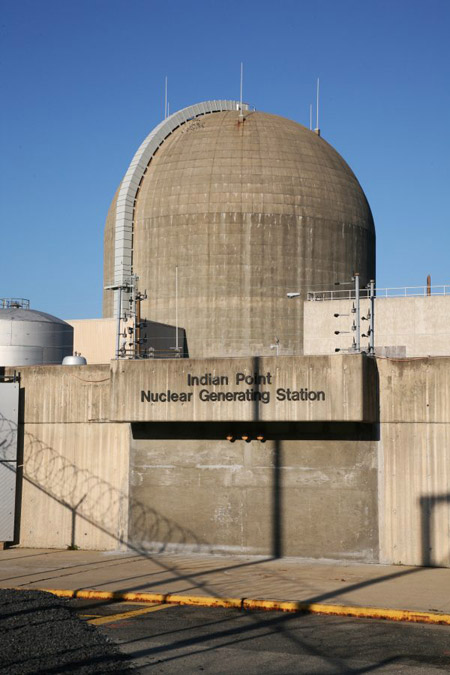Public Service Commission approves sale of Indian Point
The New York State Public Service Commission (PSC) has approved the sale of Indian Point from Entergy to Holtec International subsidiaries, giving its nod of approval to Holtec moving forward with the decommissioning of the nuclear power plant.
The commission”™s May 19 actions included issuing a negative declaration of environmental impact from the decommissioning as well as approval of a joint proposal agreement regarding various aspects of the action to be undertaken.

The joint proposal had been negotiated by New York state, Westchester County, local governments, the Public Utility Law Project, Riverkeeper, Entergy and Holtec and was designed to resolve many of the controversies surrounding the closing and decommissioning of Indian Point.
The Unit 2 reactor at Indian Point was powered down in April 2020, and Unit 3 was deactivated last month. Unit 1 at Indian Point was shut down in 1974.
In November 2019, Entergy and Holtec filed an application for license transfer with the federal Nuclear Regulatory Commission (NRC) and separately filed a petition asking the state PSC not to exercise any jurisdiction over the sale of the site.
Instead, the joint proposal was created and presented to the PSC for its review and consideration. The NRC previously approved the license transfer without the provisions contained in the proposal, and New York state filed a lawsuit challenging the NRC’s decision. The Proposal as approved by the PSC resolved the federal litigation.
Under the agreement, Holtec is required to ensure that there is adequate funding for completing the decommissioning process. This includes:
- Maintaining a minimum balance of no less than $400 million in the decommissioning trust fund for 10 years;
- Maintaining a minimum balance of no less than $360 million in the decommissioning trust fund at partial site release from the NRC for costs related to waste management and radiological cleanup of the site;
- Requiring Holtec to return 50% of the money it recovers from the U.S. Department of Energy for spent fuel management costs to the decommissioning trust fund;
- Conducting site restoration and remediation under an order of consent with the state”™s Department of Environmental Conservation, which will oversee the hazardous materials and residual radiation cleanup at Indian Point, including through the use of an on-site monitor;
- Providing funding toward state and local emergency management and response; and
- Providing financial and project reporting to the state and the public through a website and other channels to ensure transparency regarding project status and costs.
In addition, the joint proposal establishes a series of reporting requirements with which Holtec must comply. It must meet monthly with state and local government representatives to provide project updates. At these meetings, Holtec will be required to report on, among other topics, the status of major project activities, the project budget and any significant changes to either the project”™s schedule or to its projected costs. New York state also will receive twice-yearly updates on the status of the decommissioning trust funds.
In its order approving and adopting the proposal, the PSC noted that the NRC has approved Holtec to decommission two other nuclear facilities: the Oyster Creek Nuclear Generating Station in Lacey Township, New Jersey, and the Pilgrim Nuclear Power Station in Plymouth, Massachusetts.
The PSC said that a staff review of these projects determined that while both remain in the early stages of decommissioning, they appear to be proceeding on schedule and in line with Holtec”™s projected budgets.
“With these decommissioning projects commencing years ahead of Indian Point, New York stands to benefit from the experience gained and lessons learned at Oyster Creek and Pilgrim,” the PSC said.
In order to help keep tabs on what”™s happening at Indian Point, the state is establishing the Indian Point Decommissioning Oversight Board. The board will have on it state officials, scientific and technical experts, local officials, labor union representatives, environmental groups, and other interested stakeholders.
Among the local officials on the board will be the Westchester county executive or designee, the mayor of Buchanan or designee, the superintendent of the Hendrick Hudson School District or designee, the supervisor of Cortlandt or designee and state Senate and Assembly members from the area.